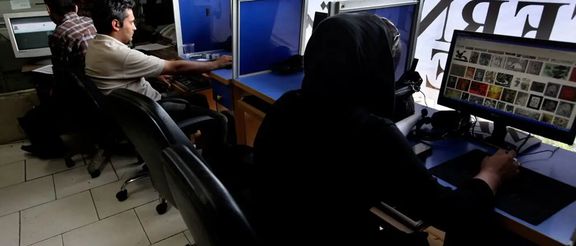Public Outcry in Iran as Government Ramps up Internet Disruptions

The tightening of internet restrictions in Iran has caused widespread disruptions and a slowdown in internet speeds, impacting various regions across the country.

The tightening of internet restrictions in Iran has caused widespread disruptions and a slowdown in internet speeds, impacting various regions across the country.
In voice messages shared with Iran International, Iranian citizens are expressing their frustrations and emphasizing the impact of the disruptions, highlighting the government's use of internet control as a means of suppression.
A report from Filterbaan, an organization monitoring internet access in Iran, noted that since Sunday, there have been significant disruptions in access to various data centers within the country.
Human rights groups, including Amnesty International, have said that the disruptions are a way for the Islamic Republic to suppress dissent and cover up its human rights violations.
Amid reports that he plays a central role in censoring the Internet, Iran’s President Ebrahim Raisi, spoke at the inauguration of an optical fiber project in the city of Qom.
Despite those reports, Raisi instructed the Minister of Communications to ensure that internet speeds are continuously improved.
"No one, even those in the gaming industry, should be annoyed by the internet. These annoyances are not good," Raisi said.
Assessments by Filterbaan suggest that the ongoing disruptions result from government policies aimed at deliberately not developing external bandwidth in proportion to user expansion, along with repeated increases in internet prices.
These measures are part of a broader strategy, Filterbaan says, to establish a comprehensive national information network that forces users to rely on domestic platforms while restricting access to VPNs.
Due to government filtering policies, platforms like Instagram, X, Facebook, and Telegram have long been inaccessible in Iran, impacting millions who cannot work and affecting numerous small businesses that rely on social networks.